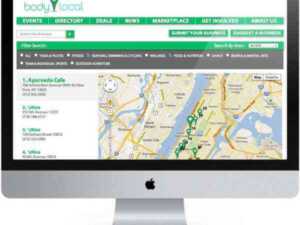It’s natural for a parent to worry about their teen driving. With limited driving experience, you worry about keeping your child safe every night. While time and practice will help them become more efficient, it is your responsibility to protect your teenager ahead of time by teaching him the rules of the road. Most likely, they already know about the basic rules of the road by training drivers, but more detailed information may be exactly what keeps them safe. Below are a few topics to discuss with your teen driver:
1) Distracted driving
A very important topic for conversation with a teenage driver is distracted driving. Operating your vehicle while trying to text, take photos, answer a phone, apply makeup, or do your hair increases your chances of getting into an accident. Explain to your child how important it is to focus on the road.
2) Seat belts
It might seem like it’s cool to ride without a seat belt, but it’s against the law. Not to mention, if your teen is driving without a seat belt, an accident can do significant damage. There are many online demo videos that you can use to explain what happens to a driver without a seat belt. It can be scary for them to watch, but this fear can prompt them to buckle up before takeoff.
3) Driving under the influence
Adolescence is usually the time when children start experimenting with drugs and alcohol. While you hope your teenager avoids this kind of behavior, you should still educate them about the dangers and consequences of using a car after using drugs or alcohol. You should talk to them about how these substances impair their ability to drive and increase their chances of getting into an accident. You should also talk about what would happen if they stopped being affected. Discuss the difference between driving under the influence of driving and driving with a disability and fines and legal consequences that may result from it.
4) Car safety check
Before getting behind the wheel, your teenager should learn to thoroughly inspect the car to make sure it is safe. This does not mean maintenance and repair, but just a basic check. Let them see that all of their lights are working, check the tires to make sure they are inflated, and check the dashboard to make sure they have enough gas and oil.
5) Driving in bad weather
While your inexperienced teens stay perfectly off the road in bad weather, you can’t predict what Mother Nature will face. So it’s best to prepare them. Talk to them about using fog lights in foggy or heavy rain conditions. Discuss the importance of driving at or below the speed limit to avoid slipping or aquaplaning. Drive in bad weather to teach them certain driving tips, such as how to brake slowly when ice is on the ground, or navigate poorly lit roads. in the rain. The more practice they get, the less likely they are to have an accident.
6) What to do in case of an accident
While the hope is that your teen never participates in randomness, the reality is that it can happen. It is important for your teen to know what to do when they have an accident in order to stay safe. Go through the process of what they should do, including contacting the authorities, getting out of the vehicle (if they can), photographing the damage, exchanging information with another driver (but not pleading guilty), and obtaining information from any witnesses. Then proceed to the insurance claim filing process. While you will be ready to complete this part for them now that they are older and have their own insurance and car, it is good for them to know.
You are very proud that your teen has learned all the basics of driving. Be that as it may, you also worry about them on the road. While you cannot control everything that happens while your teen is driving, you can do your part to keep them safe. This starts by educating them about the dangers of driving and teaching them how to avoid accidents and what to do if they end up in one thing, which will give you peace of mind and reduce the chances of your teen being seriously hurt.

























